Intelligence is a coveted quality to have. Every person out there is intelligent, but did you know that there are different types of intelligence, instead of just one, under which everyone fits? Moreover, there are 9 types of intelligence!
Knowing which type you belong to can really help you understand your mind better. So, which of the 9 types of intelligence are you?
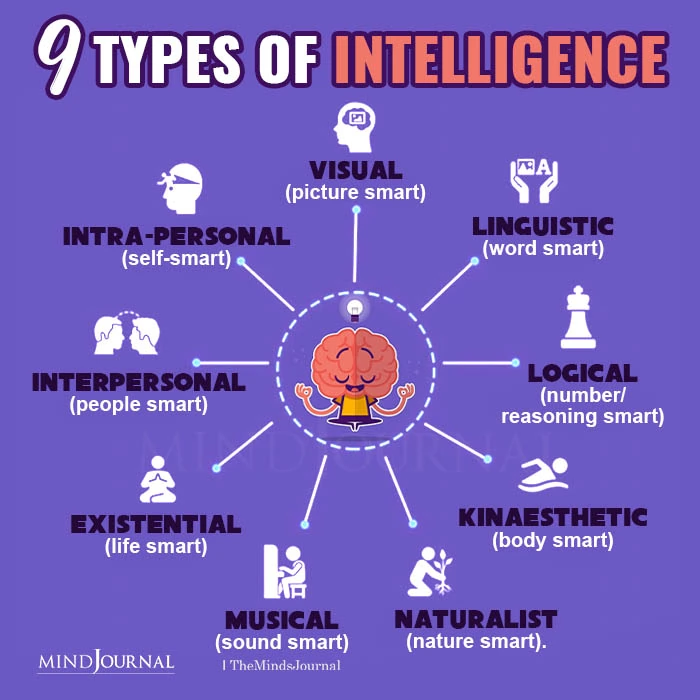
9 Types of Intelligence
1. Logical Reasoning – Logic Smart
Calculating, classifying, and finding patterns are all your strong suits. You like to experiment, solve puzzles, and identify relationships. You light up at the idea of a “deductive reasoning” exercise. This is the other most highly regarded intelligence in traditional education, so you’ve probably done well in school.
Logical-Reasoning careers: Scientists, computer programmers, inventors.
To cultivate Logical-Reasoning Intelligence: Play logic and pattern games like Sudoku, organize a collection, develop and prove a hypothesis, and find the pattern in a poem.
Famous people with Logical-Reasoning Intelligence: Nicola Tesla, Stephen Hawking, Bill Gates.
Related: 9 Genuine Signs of Intelligence That People Can’t Fake
2. Verbal Linguistic – Word Smart
You learn best through reading, writing, listening, and speaking. You probably enjoy writing poetry and stories. You’re good at identifying grammar errors and you may have a talent for learning foreign languages.
This is traditionally one of the most highly-prized intelligence in education systems worldwide, meaning it’s likely that you’ve been successful in your scholarly pursuits.
To cultivate Verbal-Linguistic Intelligence: Write in a journal, play word games (like Scrabble and crossword puzzles), read more books, and debate issues more often.
Verbal-Linguistic careers: Writers, public speakers, lawyers
Famous people with Verbal-Linguistic Intelligence: JK Rowling, Barack Obama, Martin Luther King Jr, and Junot Diaz.
3. Visual-Spatial – Picture Smart
You have an excellent ability to draw, visualize, and design. You benefit greatly from having access to pictures, diagrams, and other visual aids. You enjoy puzzles and mazes and you can visualize and manipulate objects with your mind’s eye.
Visual-Spatial careers: Architect, computer scientist, designer.
To cultivate Visual-Spatial Intelligence: Take a photography or drawing class, draw mind maps of your plans or ideas, and do puzzles and mazes for fun.
Famous people with Visual-Spatial Intelligence: Galileo Galilei, Salvador Dali, and Steve Jobs.
Related: 6 Characteristics Of Highly Intelligent People According To Science
4. Bodily-Kinesthetic – Body Smart
You learn best through touch and movement. You process information through the body and may have fine-tuned motor skills. People probably say that you’re “well-coordinated” and “athletic”. You usually need to do something to remember it and you may have a hard time working at a desk all day.
Bodily-Kinesthetic careers: Dancer, actor, construction worker, sculptor.
To cultivate Bodily-Kinesthetic Intelligence: Physical activities, manipulate objects, using fine and gross motor skills, build things.
Famous people with Bodily-Kinesthetic Intelligence: Michael Jordan, Michael Jackson, Mary Lou Retton.
5. Auditory-Musical – Sound Smart
You understand and appreciate the art of music. You do well at listening, composing, and performing music. You use rhythms and patterns to understand things. You can probably remember and even replicate a sound or listening passage you’ve only heard once.
Auditory-Musical careers: Composer, DJ, Band Director, Singer.
To cultivate Auditory-Musical Intelligence: Listen to music while studying, connect music to a lesson, and write a short song.
Famous people with Auditory-Musical Intelligence: Mozart, Yo-Yo Ma, Alicia Keys.
6. Interpersonal – People Smart
You enjoy socializing, sharing, conducting interviews, and cooperating. People may consider you extroverted and/or empathetic to others. You’re an excellent group leader and team player.
Interpersonal careers: Politician, teacher, social worker, counselor.
To cultivate Interpersonal Intelligence: Engage in group activities, volunteer for community service, teach a class or a friend something.
Famous people with existential Intelligence: Oprah Winfrey, Dr. Phill, Mother Teresa.
Related: What’s Your Dominant Intelligence? QUIZ
7. Intrapersonal – Self Smart
Intrapersonal-intelligent people are highly skilled at understanding themselves. You are introspective, independent, and self-motivated. You learn best by working alone and setting individual goals.
Interpersonal careers: Psychologist, poet, therapist.
To cultivate Intrapersonal Intelligence: Keep a daily journal, read self-help books, and imagine yourself in other people’s shoes.
Famous people with existential Intelligence: Anne Frank, Aristotle, Gandhi, Hellen Keller.
8. Naturalistic – nature smart
Naturalistic learners feel a connection to the earth. You learn by working with nature. People may say you have a green thumb or that you’re an animal whisperer. In school, you always loved having class outside and you may have engaged in hobbies such as bird watching or rock collecting.
Naturalistic careers: Zookeeper, veterinarian, conservationist.
To cultivate Naturalistic Intelligence: Keep a nature journal, start a small garden, go outside for everyday activities, take care of a pet.
Famous people with existential Intelligence: Steve Irwin (“The Crocodile Hunter”), Jane Goodall, Gregor Mendel.
Related: Only Americans With A Ph.D. Got 10/10 In This IQ Test
9. Existential (Spirit smart)
This intelligence has only recently been identified and was not included in the scoring of this quiz. It is the ability to deal with the big questions of human existence and metaphysics. People may say you have a “sixth sense”, a “strong aura,” or an “old soul”. No matter your age, you give off a feeling of inner peace and wisdom.
*US scholars have been hesitant to include this intelligence in the context of child education, in an effort to avoid mixing church with state.
Interpersonal careers: Shaman, yogi, clergyman, psychic, philosopher
To cultivate existential Intelligence: practice meditation, write down some “big” questions and write down the answers that come to you
Famous people with existential Intelligence: Buddha, Lao Tzu, Joan of Arc, Simone de Beauvoir
Want to know more about 9 types of intelligence? Check this video out below about the nine types of intelligence!
Source: IHeartIntelligence
Frequently Asked Questions (FAQs)
Who is the contributor of 9 types of intelligence?
Howard Gardner, a professor and psychologist at Harvard first introduced the concept of different types of intelligence in his 1983 book, “Frames Of Mind”.
What is linguistic intelligence?
Linguistic intelligence is the ability to decipher and understand concepts and ideas written in words. People with linguistic intelligence understand best through reading, writing, and speaking.
Why intrapersonal intelligence is considered the rarest type of intelligence?
It is considered to be the rarest, amongst all the 9 types of intelligence because it needs you to be deeply connected with yourself. Being able to connect with yourself and introspect deeply is an admirable but challenging thing to do.
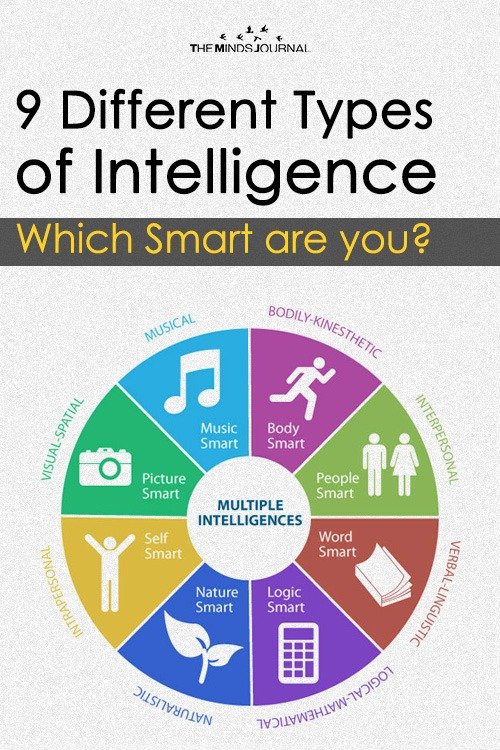
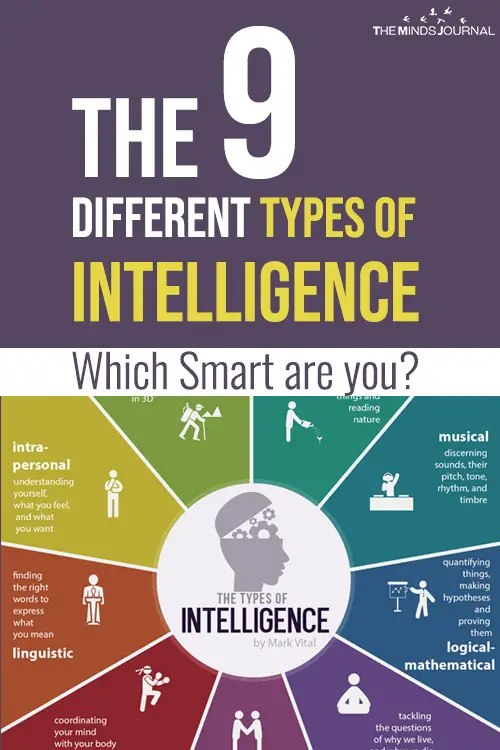
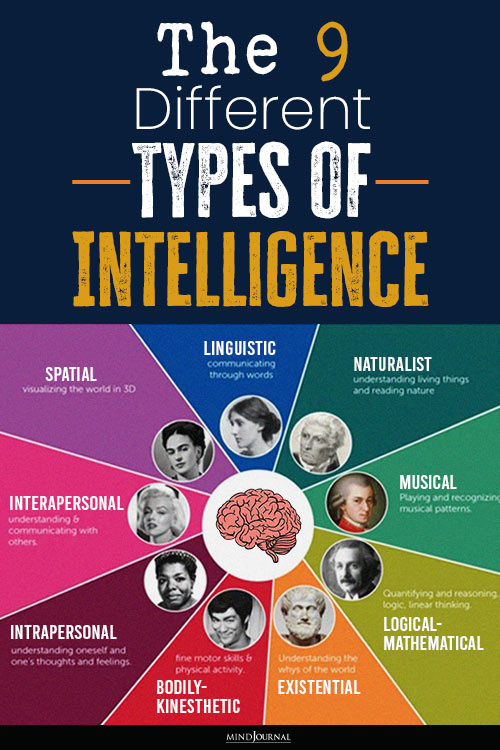
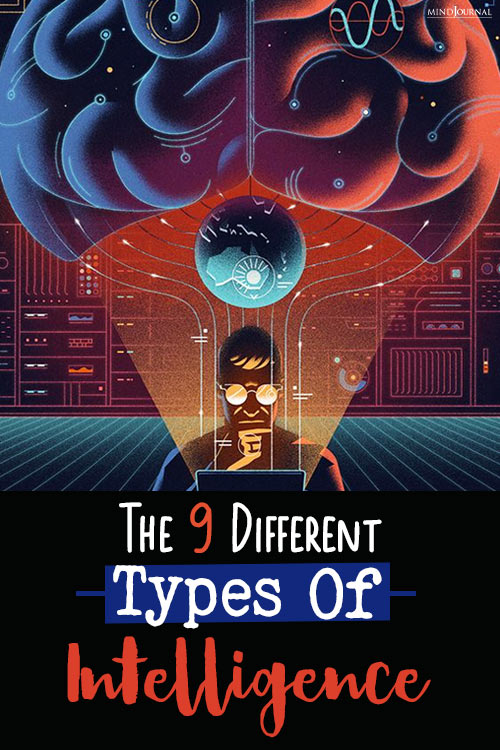
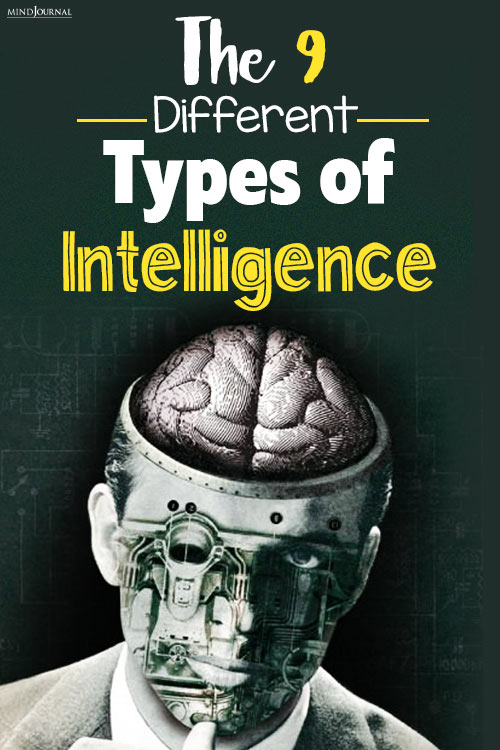
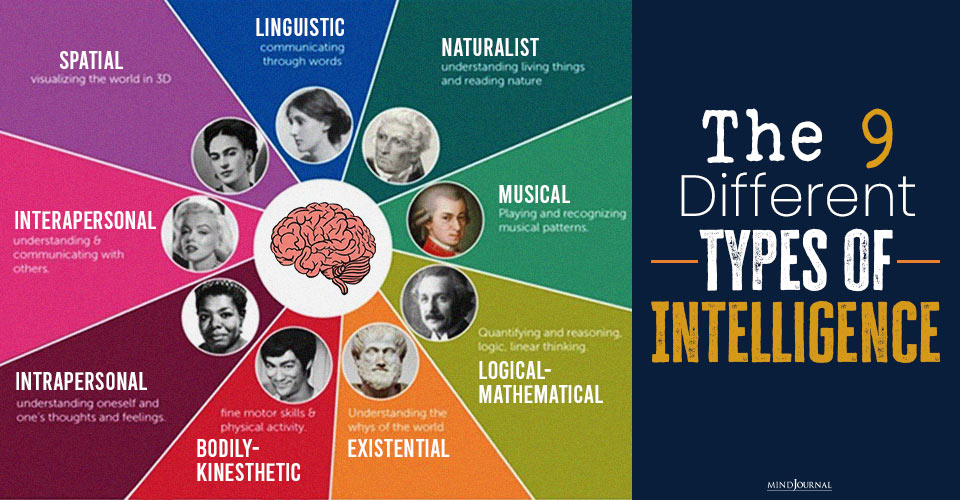





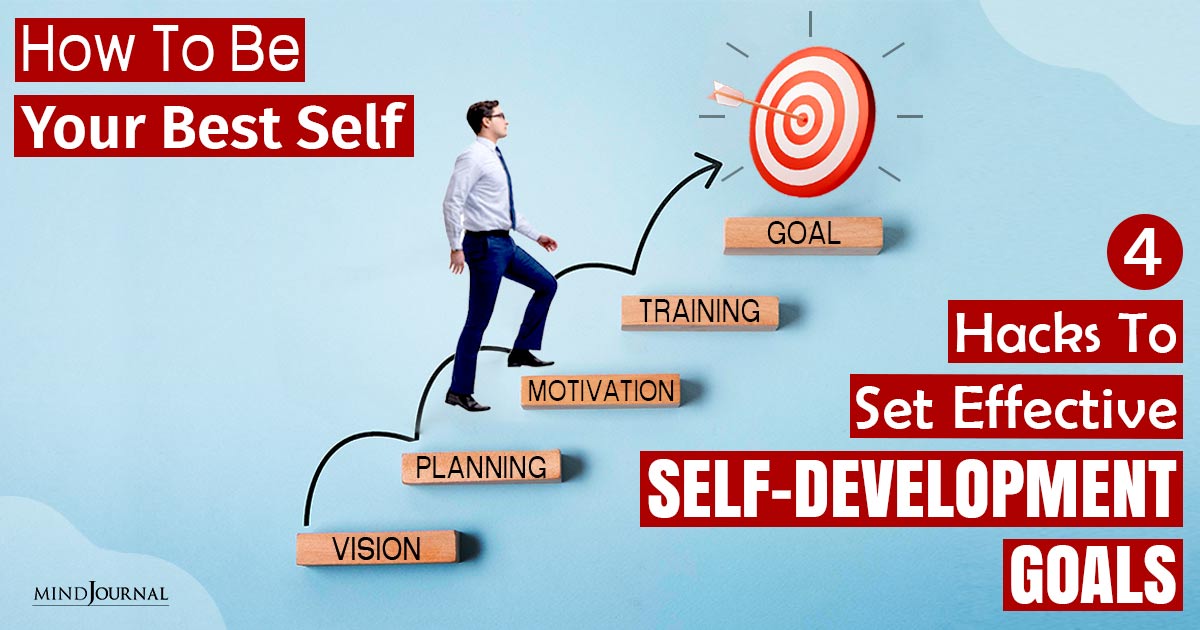

Leave a Reply
You must be logged in to post a comment.